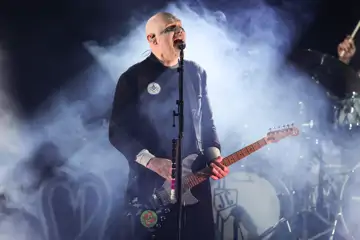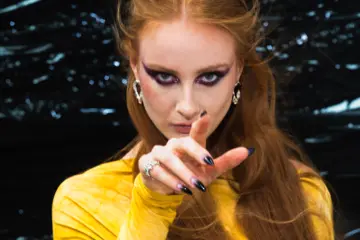JOKER
★★★1/2
Just as young thespians once dreamt of playing Macbeth, do up-and-coming actors these days dream of giving their portrayal of the Joker? After giving us one of this century’s greatest big studio movie performances, by Heath Ledger in The Dark Knight, here comes another, by Joaquin Phoenix in the comic-book-as-art movie origin story Joker. And, in between, there was Jared Leto’s Joker, which certainly wasn’t one of this century’s greatest big studio movie performances, more an exemplar of misunderstood method acting process turned unintentional performance-art self-commentary; which, of course, has its own charms for any serious young actor willing to go to ridiculous extremes.
Phoenix’s greatest gone-to extreme — and the thing that makes him feel like an Oscar lock — is radical weight loss; this Joker a film forever peering at his emaciated, often bruised and battered frame. But that’s the entry-level to a performance that is full of incredible complexities depicted in simple gesture; Phoenix manages to visually convey contradictory emotions.

Here — in 1981 Gotham City, a late-’70s-NYC-ish dirty urban horrorshow where garbage piles up on streets and every fluorescent bulb flickers — Arthur Fleck suffers from a neurological condition of pathological laughter, in which his outbursts of laughing are completely disconnected from his emotional state. In turn, he seems to be unable to understand comedy, read other people’s emotional cues or body language; and has just come out of a stint in Arkham Asylum. "The worst part about having a mental illness is people expect you to behave if you don't," he writes, in a journal whose scrawl seems informed by serial killer handwriting. And when he’s finally pushed to breaking point by a cruel, indifferent society, he shows little remorse when it comes to the violence and suffering of others; which means it feels like a textbook study in sociopathy, but also calls into question its supposed pleas for empathy.
Don't miss a beat with our FREE daily newsletter
All of this makes for a memorable piece of character study, but something that can feel morally questionable. In an age of endless American school shootings, where the spillover from internet toxic masculinity/entitlement/racism to real-life violence is becoming clearer, do we really need a film anti-heroising a disenfranchised white-male-loner out to seek revenge on a world that isn’t giving him what he desires?
Of course, Joker is clearly meant as a warning: it’s a film about how a cruel, uncaring society can breed monsters. Its portrait of “Gotham on fire” is a study in the cruelty of late-period capitalism, wealth disparity, and uncaring political systems. There’s a key storyline, within, where social service programs — like therapy sessions for, say, recently released Arkham patients — have their funding entirely cut. Its largely distant antagonist is Gotham’s far-right captain of industry Thomas Wayne, a billionaire whose "self-made" bluster feels like a parody of all manner of old men telling young people their problems are all their fault. "What do you get when you cross a mentally ill loner with a society that abandons him and treats him like trash?" starts a set-up from Phoenix herein, condensing thematic preoccupations into glib sentiment. Perhaps the most telling element of all of this is that Joker courts disaster only when its lead character comes into illegal, but all too easy, possession of a gun.

In its study of a disenfranchised outsider seeking violent retribution against a toxic society, Joker intentionally resembles Taxi Driver. In fact, that’s just the start of things: Martin Scorsese was brought on, initially, as producer, and there’s homage not to just Taxi Driver, but The King Of Comedy, too, with the presence of Robert De Niro — playing a late-night talkshow host, no less — making it all plenty explicit. Director Todd Phillips — you know, the Road Trip, Old School, Hangover guy — openly cribs from Scorsese, too; though, in its best stretches, Joker’s ironic juxtaposition of feel-good Golden Oldie radio hits with grim imagery feels more inspired than indebted. There’s also strong influence from Sam Esmail’s commanding direction in the TV series Mr Robot, in particular when Gotham is swamped in a mass of protestors in clown masks. Phillips handles the tone, the paranoia, and the psychological-disruption well.
Joker is at once grand entertainment, smart psychological study, and off-the-wall riff on bubblegum intellectual property, posing questions in both text and its social meaning. Is this a warning on alienated male rage? Or unintentional commemoration of? And is its radical reimagining of the scope and possibilities of a comic book movie cause for celebration or concern? It’s great that something as off-the-wall as Joker can serve as counter-programming to the artistic/political conservatism of the DC Snyderverse. But if/when Joker becomes a staple of the imminent Oscar season, should we not be wary of this dark new paradigm? Where even prestige pictures must crib from comic book sources, and cinematic provocations are only welcome if there’s in-built super-hero brand-recognition?















